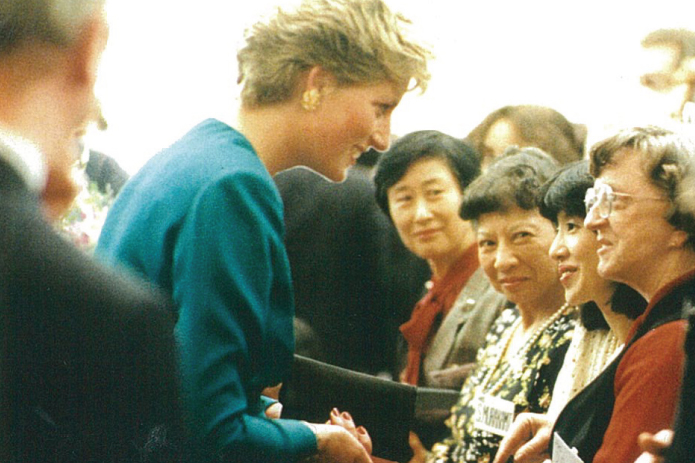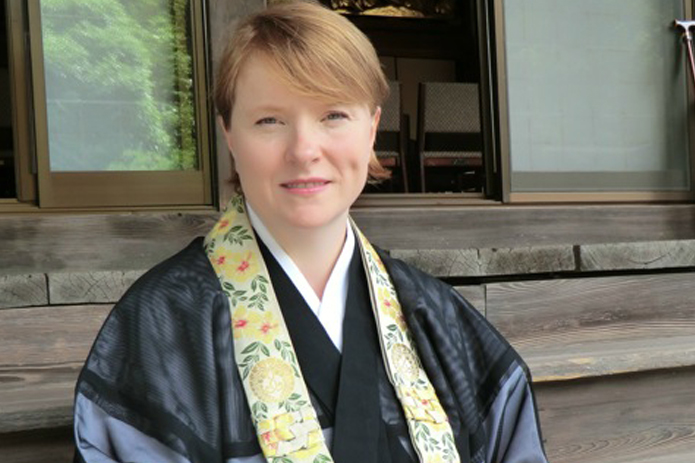White Russian chose medical career over being a spy
I went to see a remarkable man the other day. His name is Dr Eugene Aksenoff, and he is a White Russian by ancestry. That is to say, this medical doctor is driven by passions the like of which rarely get into a slowcoach like me.
Dr Aksenoff is a GP and he is the founder of the International Clinic in Roppongi. For 60 years plus, he has been serving the international community in Tokyo—while assuming a very broad definition of his duties to his patients.
He will soon—and I kid thee not—take on as a patient a Pakistani woman with no papers (I am thinking of an actual case), just like the high-flying showbiz stars from LA who end up on his doorstep.
At 88 years of age, he is still at it a couple of days a week and has no plans to retire. For nearly half a century he and I have lived in the same part of Tokyo, and yet never met. Thus, it was exciting to stumble in on him at the clinic, and finally meet the neighbour of all these years for an interview.
That said, nothing had prepared me for the story that he told, seated at his capacious desk, hands spread (they are big hands; he is a tall man with long arms), eyes flashing and nostrils flared, just in case I dared challenge a word he said.
This story takes place in 1946, just after the end of World War II. Aksenoff had, by that time, completed his Japanese language course and was well into his medical studies here. Young as he was—still just 22—he was well known during the occupation. He was one of a handful of young people whom “everybody knew”, because they knew English and Japanese—and Russian in Eugene’s case. Plus he had his growing knowledge of medicine.
Thereby, Aksenoff came in contact with a team, headed by a Todai professor, that was studying the Hiroshima A-bombing and the survivors in the city—many suffering from radiation exposure. Eugene and his professor went back and forth to Hiroshima “many, oh, many times”. They got a name for themselves for knowing the subject of Hiroshima and its A-bomb, as well as the survivors and their health issues.
At that point, Aksenoff was noticed by foreign governments wanting to know the score in Hiroshima—this being the first time that human beings had been exposed to massive, deadly radiation.
Aksenoff remembers the pressure on him: “There were three governments—the US, the UK and Russia—all trying to make a ‘spy’ of me”.
“A spy”, he blurts out, hands flying over his desk.
“A spy”, he repeats, in apparent disgust. “What these three governments wanted to find out was how the radiation sickness progressed; they wanted to lay their hands on the research findings”.
Eugene waved aside the intelligence folk who approached him. He believed that their purpose was simply to obtain data relevant to their own governments’ nuclear weapons development. A nefarious purpose in his eyes.
Listening to his story, seeing his eyes flash, I asked him whether he has ever attended any of the thousands of anti-nuclear rallies staged down the decades in Japan. “Actually no,” he said, reaching into his pocket. He could not take the risk. He pulled out what looked like a passport. In fact it was a re-entry card with a hard cover, much like a full document.
He is stateless; he has no nationality. He never has had a passport—or not since his old Manchurian passport ran out.
Aksenoff was born to White Russian parents in Manchuria in l924. His parents settled down and built a farm there, with horses to breed. Eugene had come originally to Japan at the encouragement of a Japanese army officer who had visited the farm to see the horses. That visitor, charmed by Aksenoff, had helped him come to Japan for his university studies in 1942.
Three years later, the war ended, the Japanese empire came to an end, Manchuria reverted to China—and Aksenoff took his decision not to become a spy. Not for the US, nor for the UK, nor for Russia, he says. He is a doctor.
And if you visit his consulting rooms, you may be attended by a GP who has, in his time, counselled the likes of Brad Pitt, Madonna and the late Michael Jackson and two of his children. But that’s another story, isn’t it?


